Getting Ready for Local: VT Workshops Bring Together School Nutrition Professionals and Farmers
Farm to School Spotlight: Julianne Eagan
Back to School with Food Connects
A Farm to School Celebration
Back to School Resources

Getting Ready for Local: VT Workshops Bring Together School Nutrition Professionals and Farmers
Farm to School Spotlight: Julianne Eagan
Back to School with Food Connects
A Farm to School Celebration
Back to School Resources
For most school administrators, their work has been non-stop since the pandemic first came to Vermont. From ever-changing health guidelines to troubleshooting class schedules and how to safely bring students back to in-person learning, and all the different technologies they’ve had to adopt, there hasn’t been much time for rest and reflection. Thanks to the generous support of Members 1st Credit Union, Food Connects hosted administrators and school nutrition professionals from across the region for an afternoon celebration of all that’s been accomplished despite the odds.

On a deceivingly sunny day, 14 school staff members from 9 different schools gathered together for the first time, in what seems like, ages. Each school has a unique Farm to School program, yet schools rarely get to see all the interesting things happening elsewhere. The guests had the opportunity to cross-pollinate and share ideas on how to improve school gardens, share unique ideas about incorporating local food into their cafeterias, and generally celebrate the amazing (and challenging) Farm to School year.
“It was so nice to be able to connect with other area schools and hear about the tremendous impact of Food Connects.” said Kelly Dias, Academy School Principal. “ I'd love to keep up the networking throughout the year with our school-based teams if we can find a way to do so.”
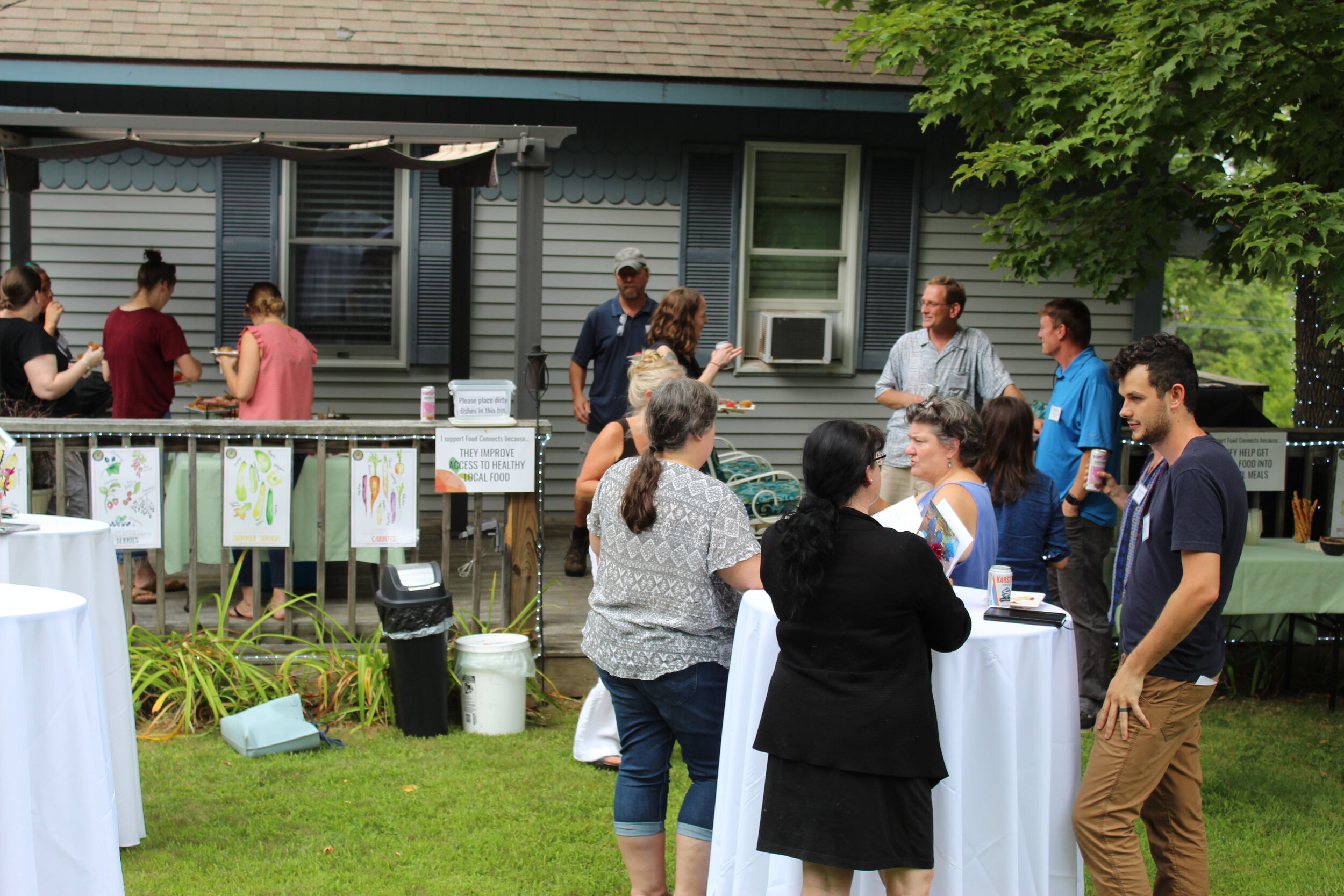
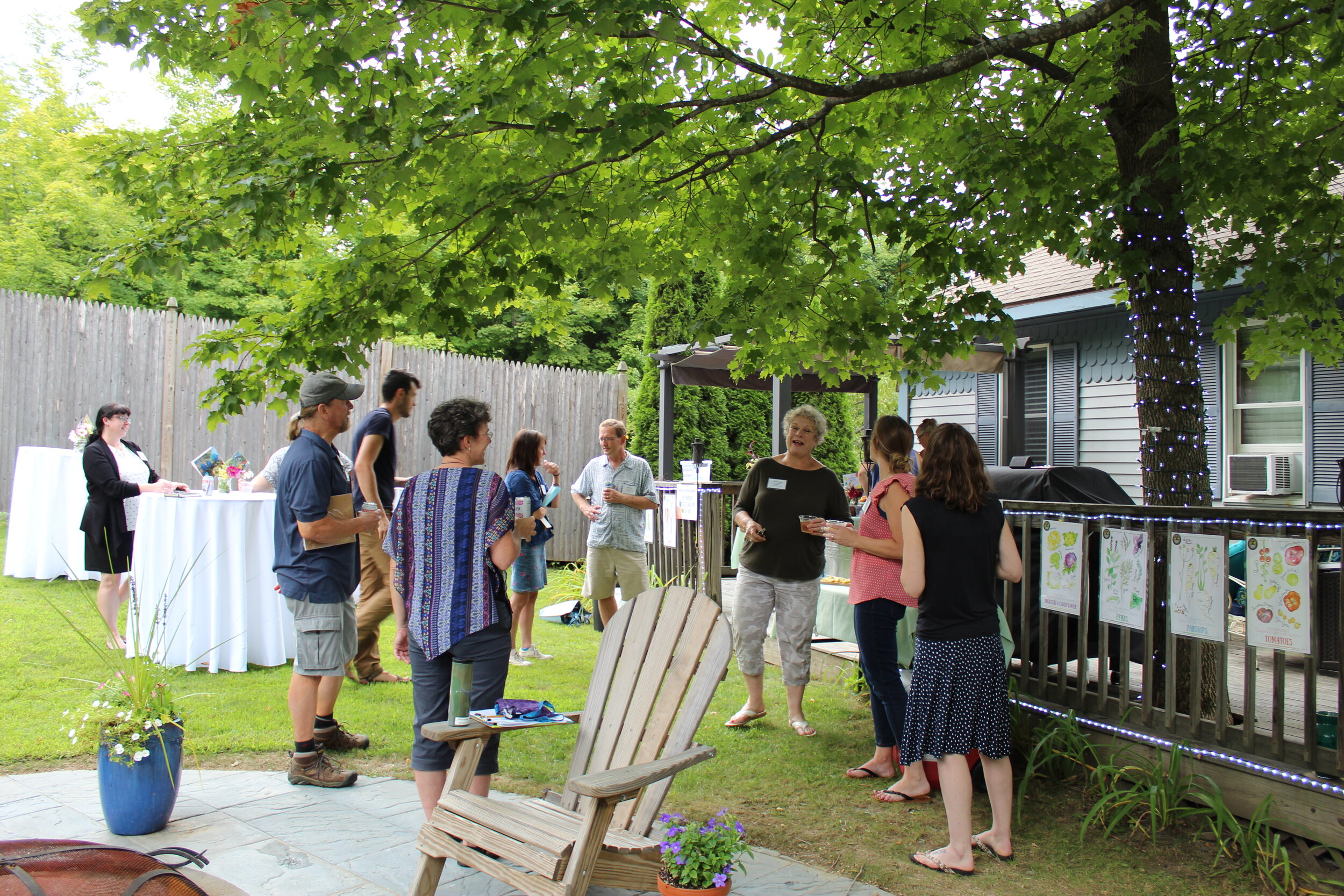
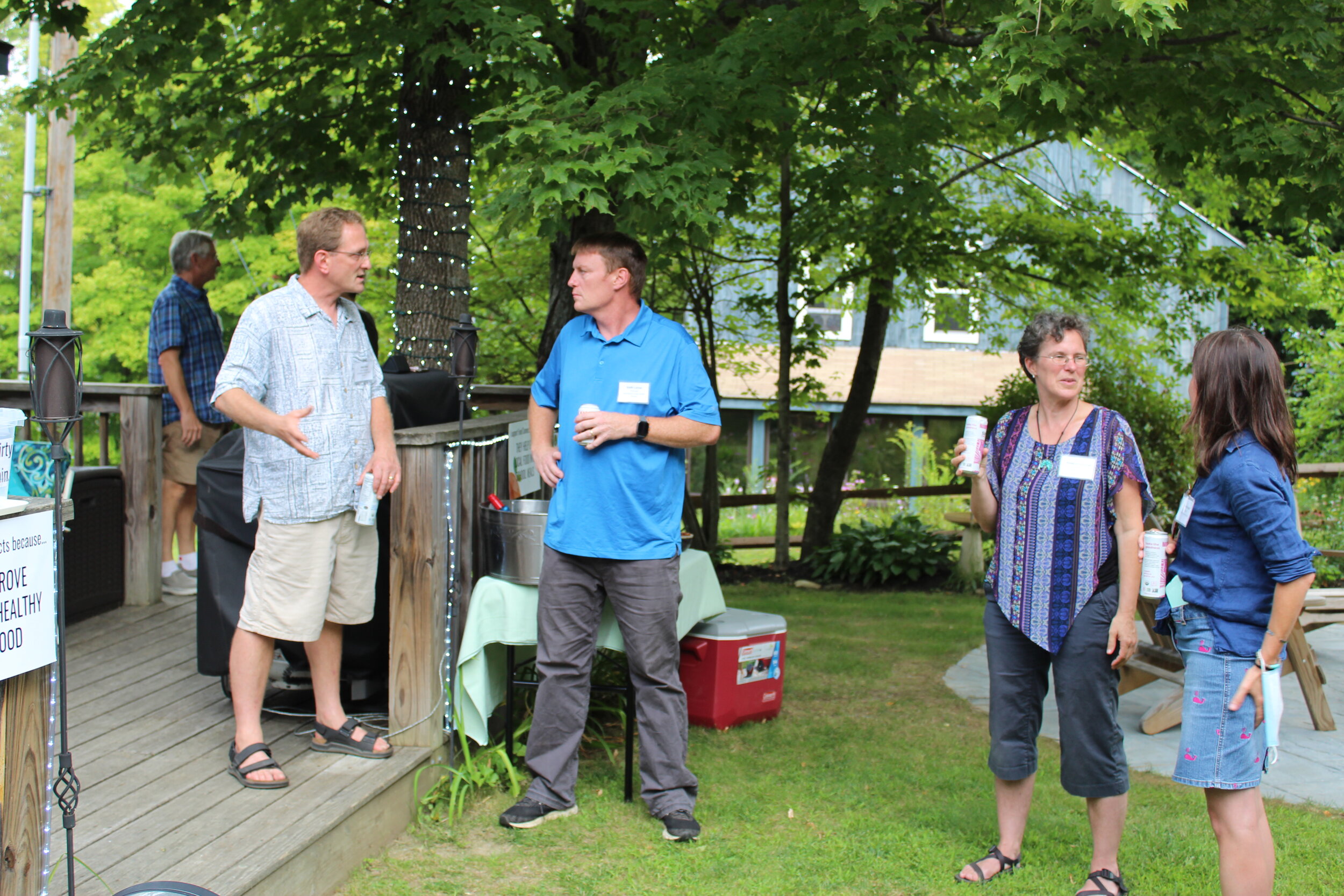
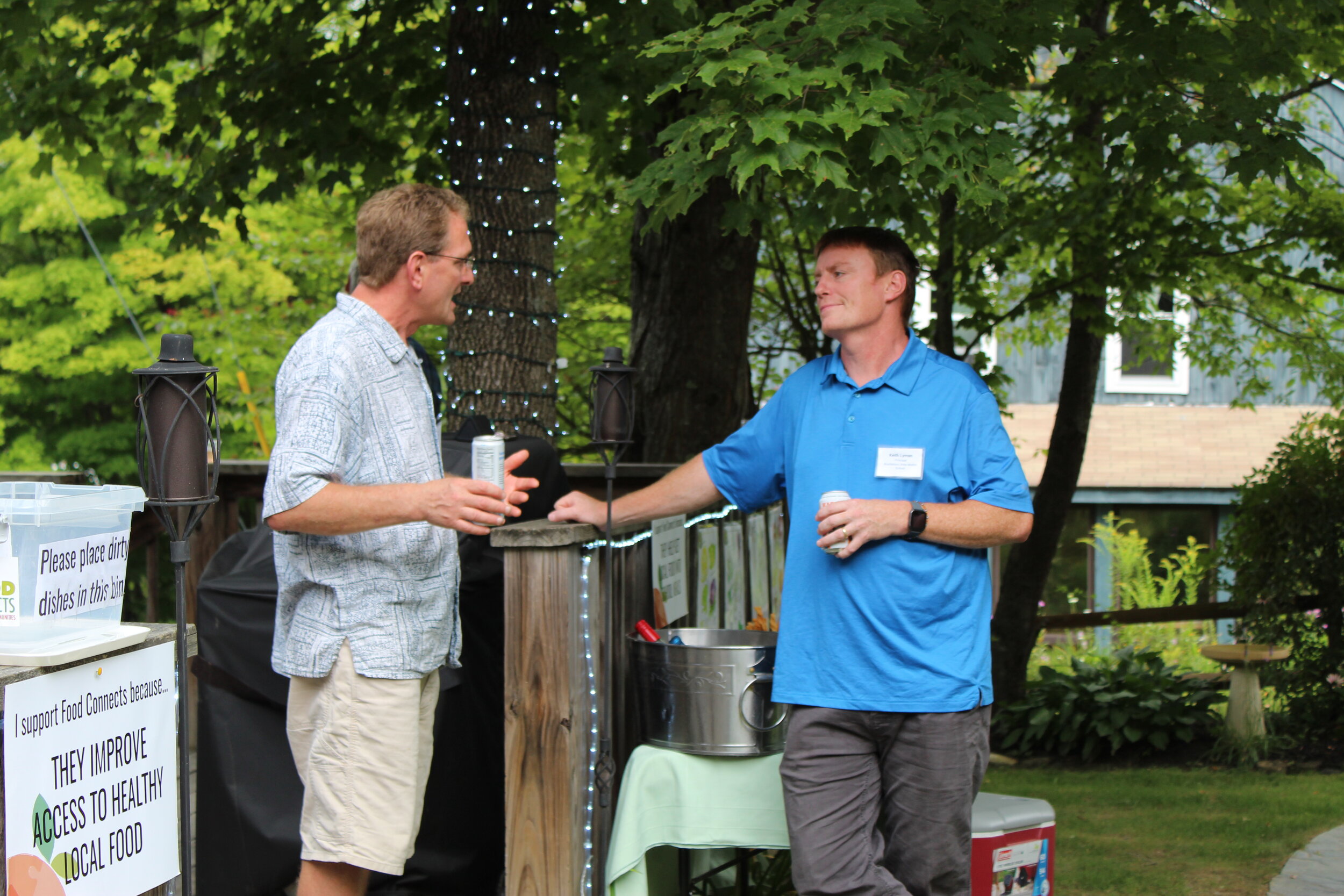

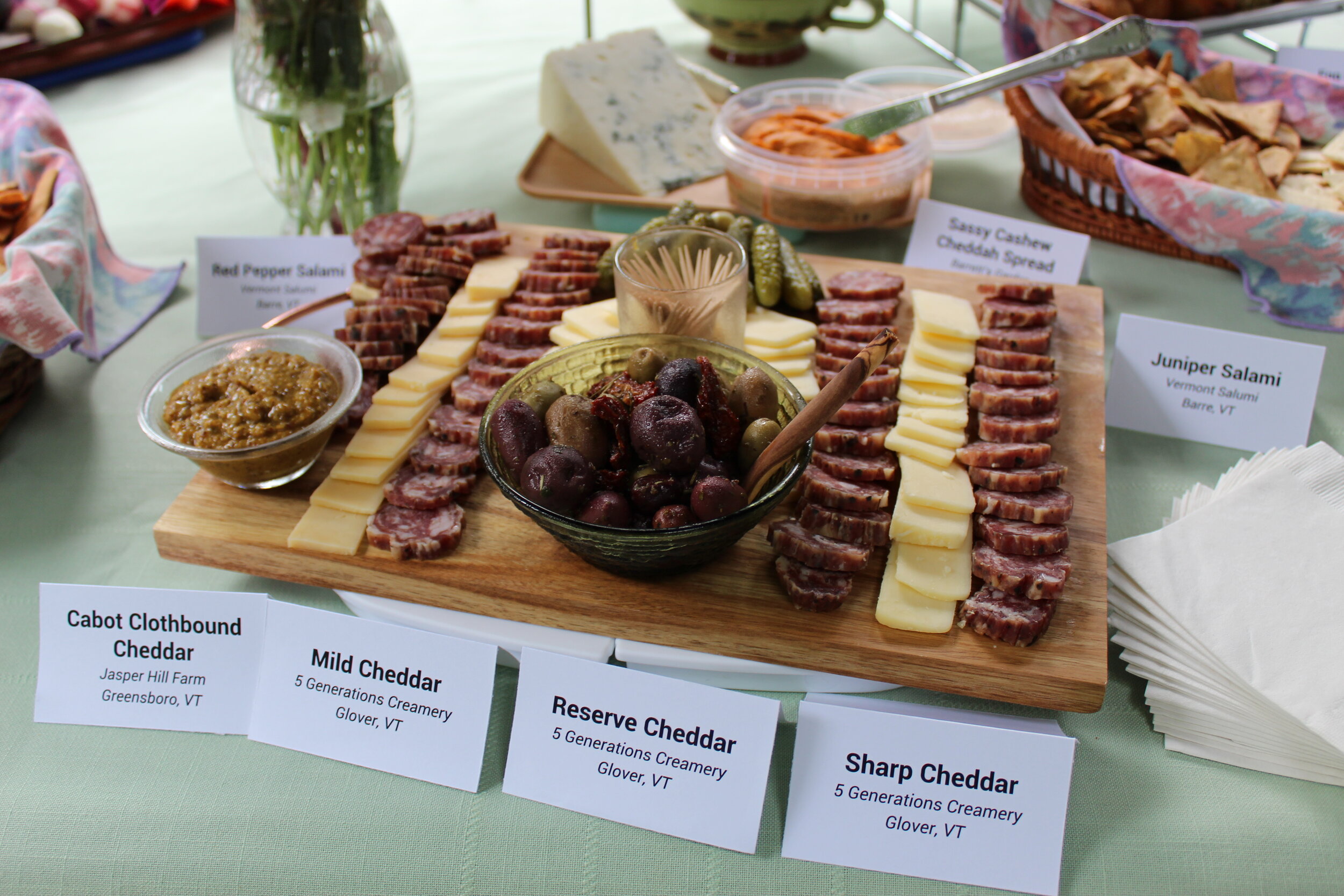
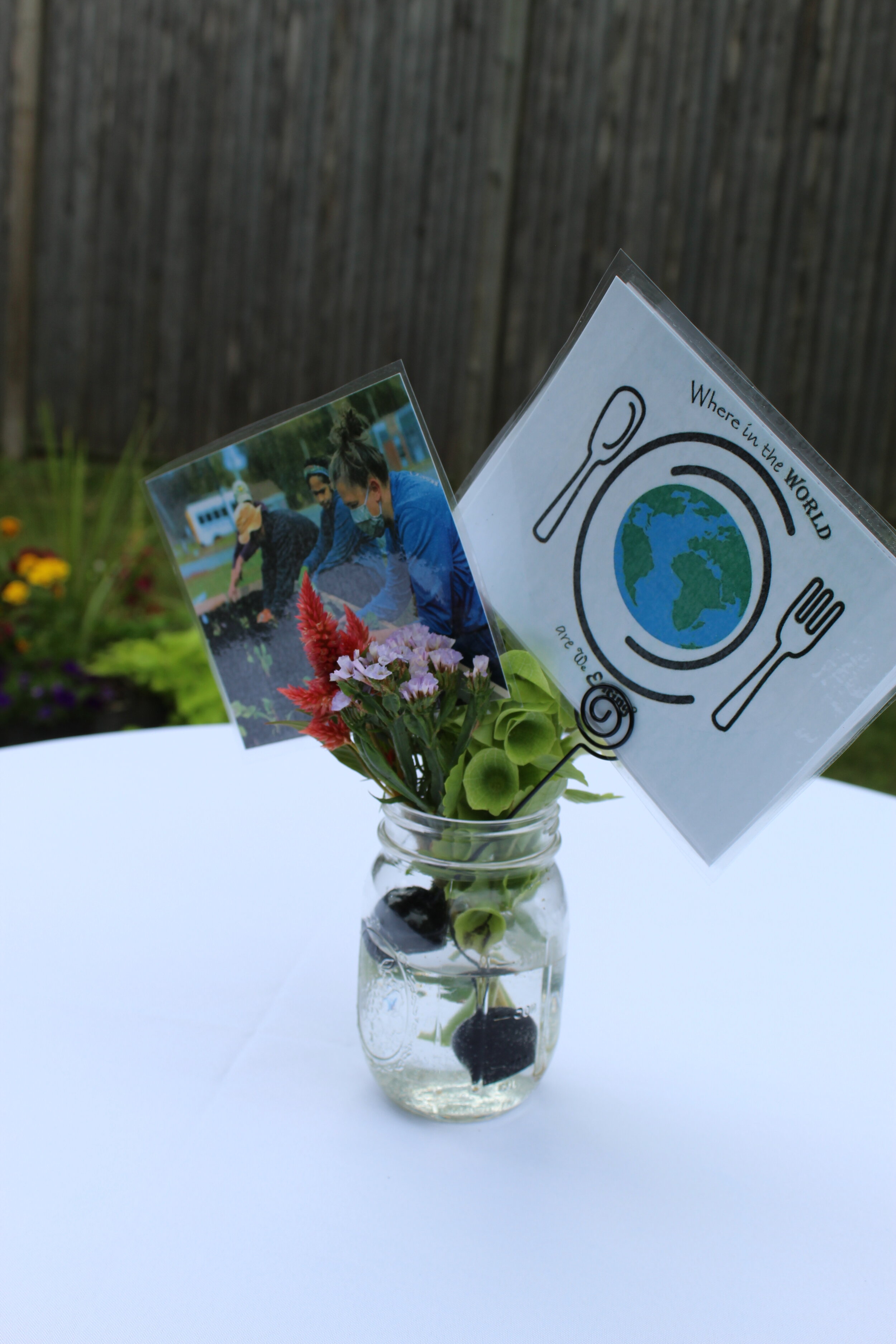

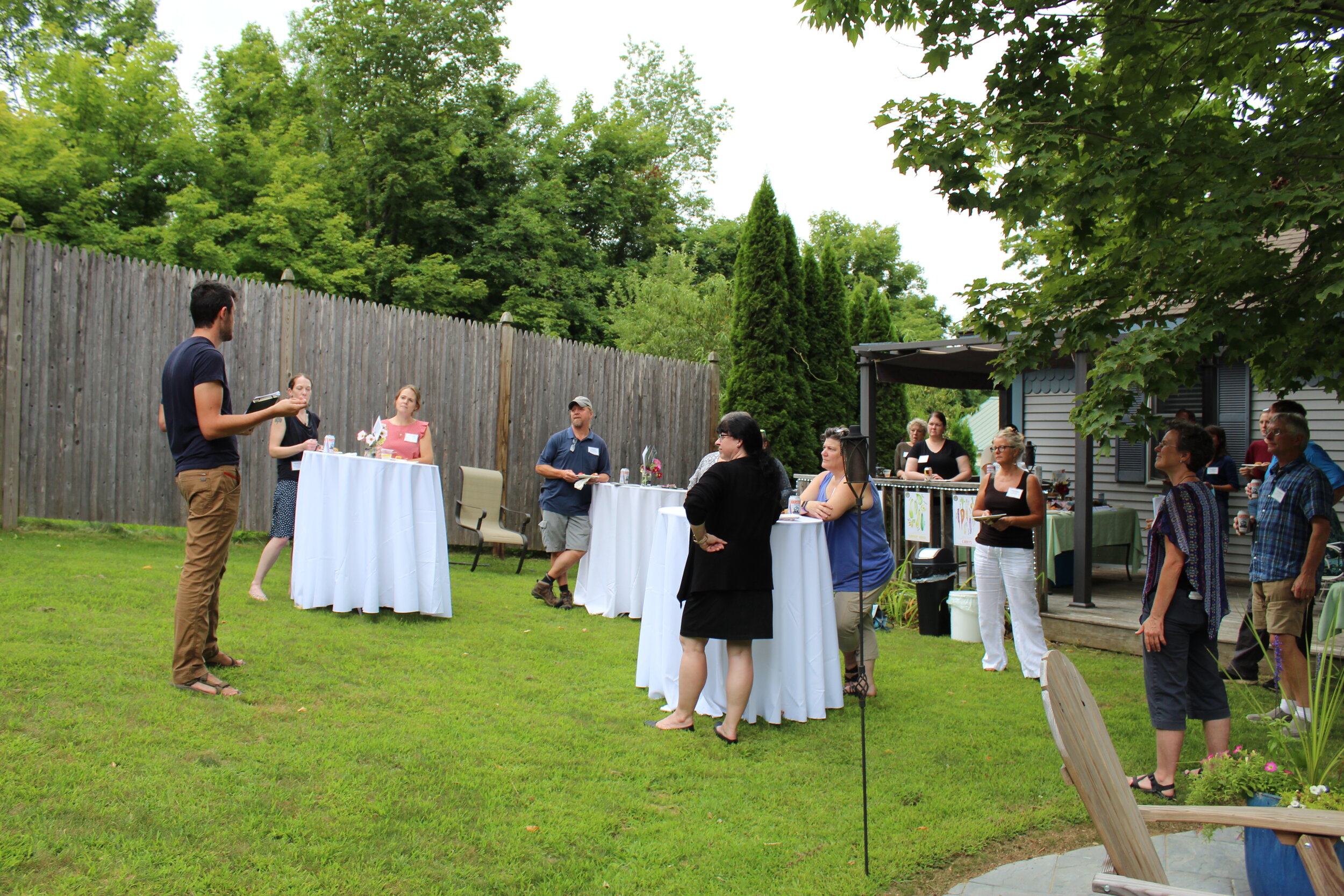
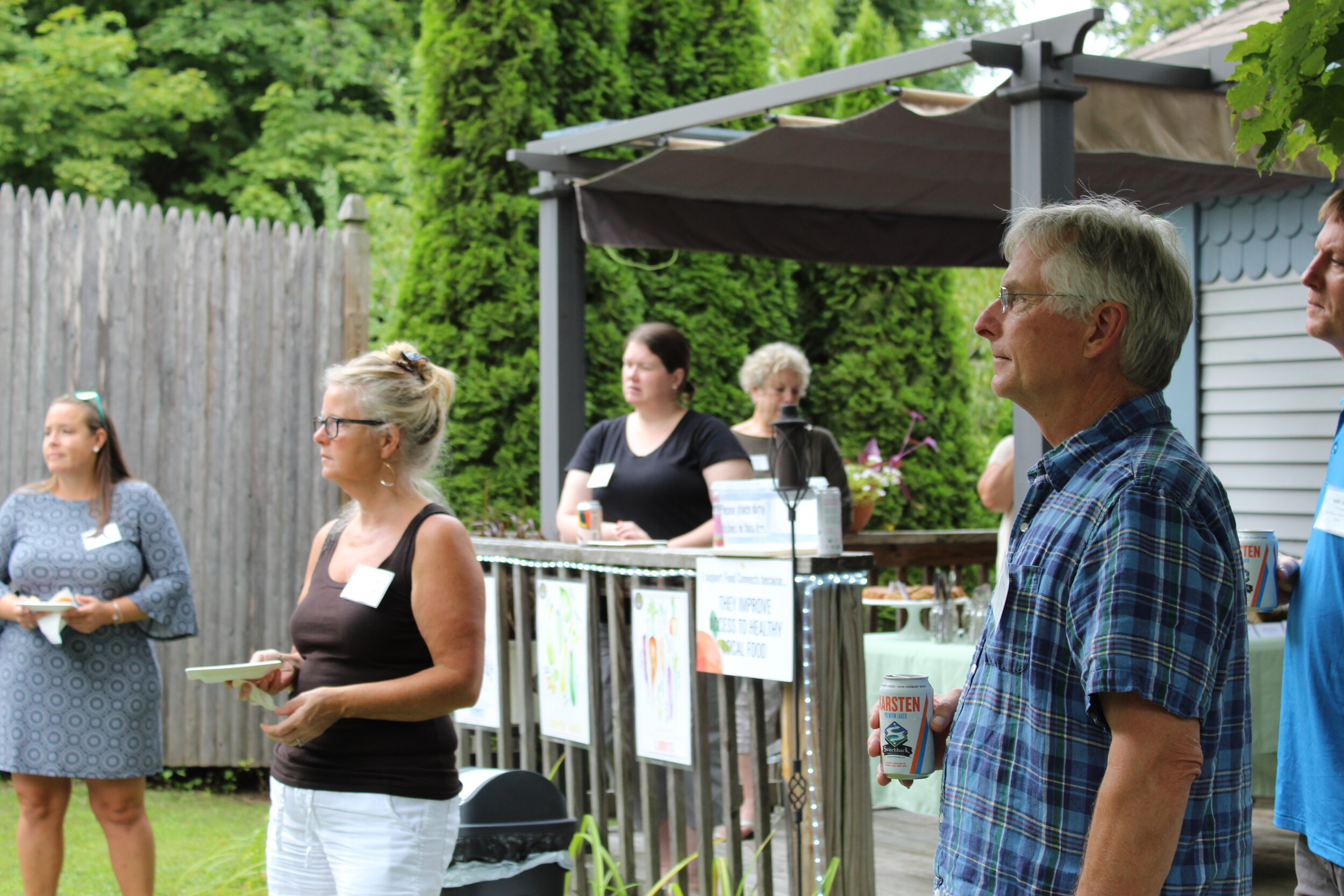
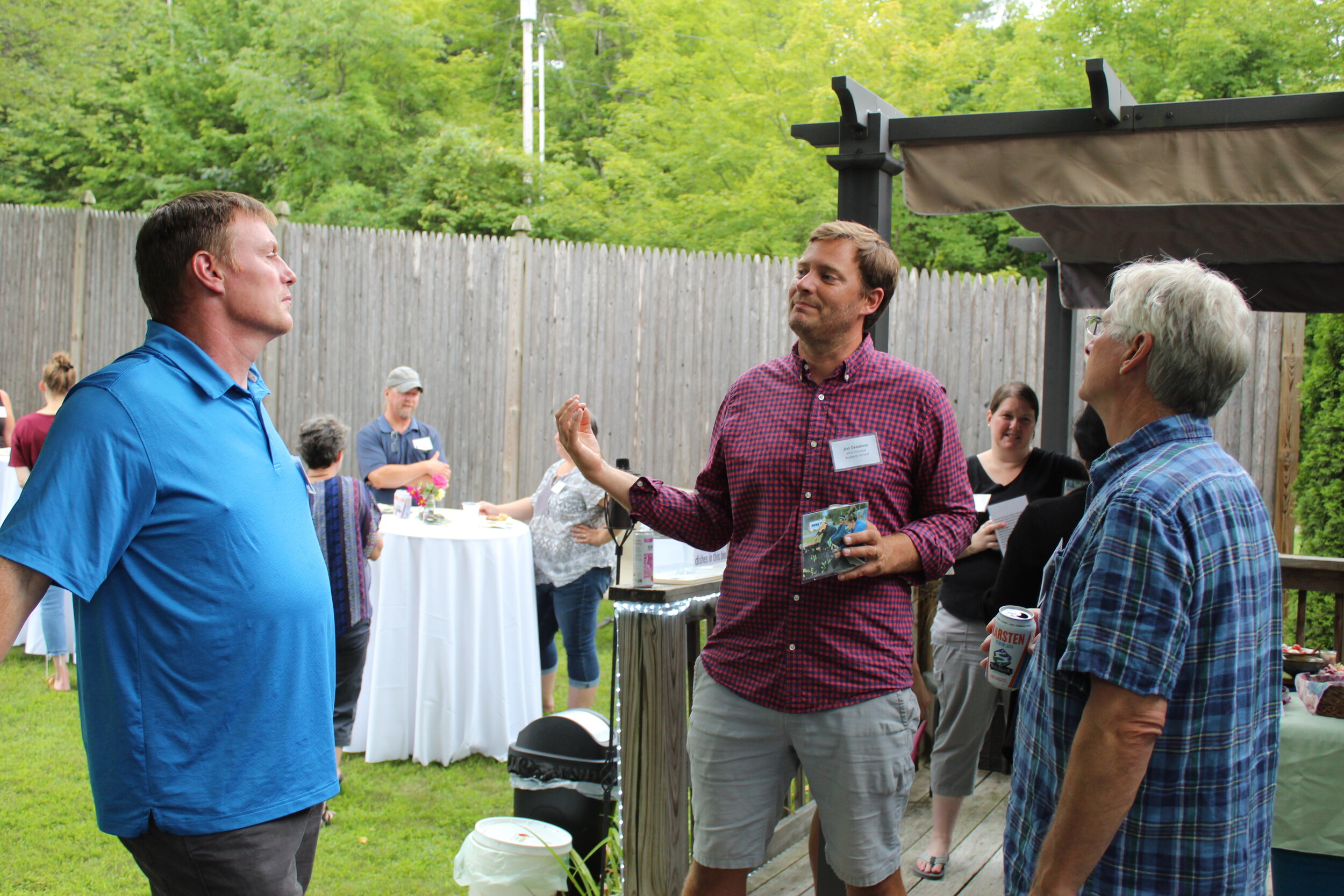
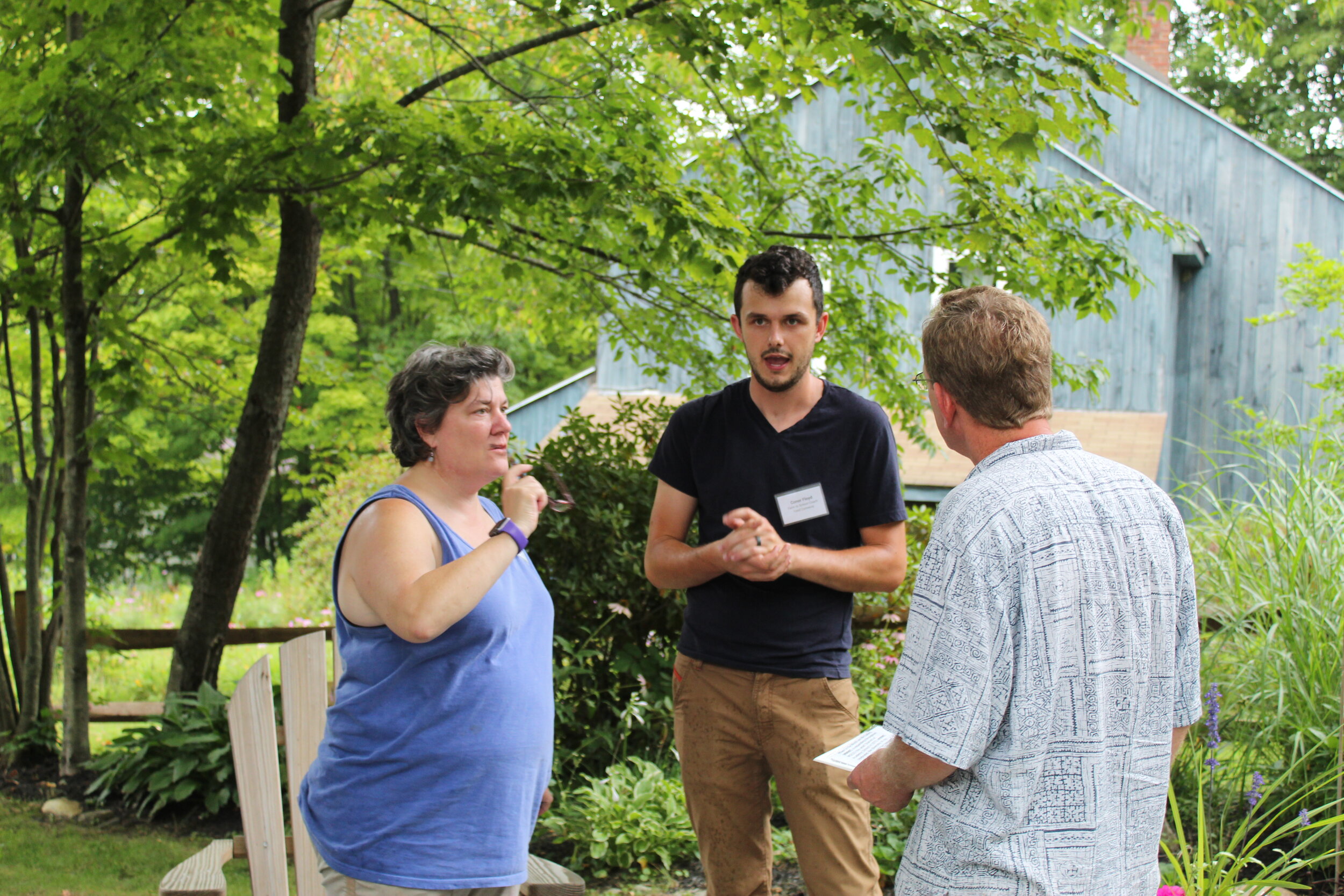
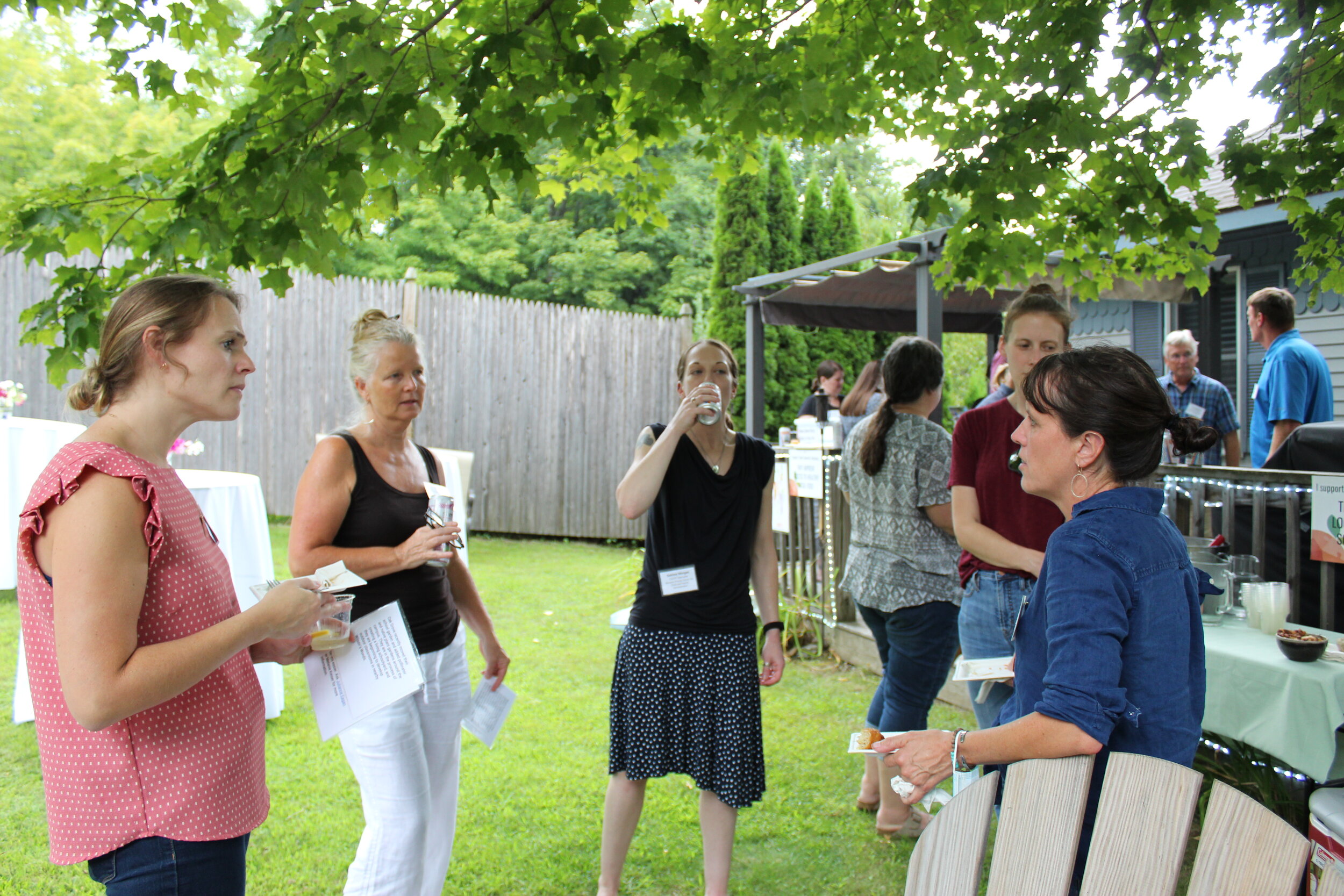
Despite some surprising heavy rains midway through the event, principals were able to connect and learn from each other. Each attendee was paired with another school that had a similar program that they could learn from. From the new Where in the World are We Eating program in Windham Southeast Schools, to the new Farm to School program starting up at Central Elementary School, the full spectrum of programming was represented at the event.
Evelyn Sirois, CEO at Members 1st Credit Union, said that they support the Food Connects Farm to School program because “It enriches our educational practices and emphasizes local involvement in our agriculture." Food Connects is grateful for the fiscal support of Members 1st Credit Union for making this event possible. As a nonprofit organization, Food Connects relies on the generosity of our community donors, like Members 1st Credit Union to hold celebratory events and professional development offerings for our school teachers, administrators, and food nutrition professionals in our community.
Looking for ideas to bring outdoor learning up a notch at your school this fall? Or creative ways to engage with students around farm, food, and nutrition education during this school year?
As part of the COVID-19 mitigation plan, school staff is encouraged to incorporate the outdoors as much as is reasonable in their instruction or daily routines this fall. Our Farm to School Resource Hub is a great place to look for ideas and support for outdoor learning, school gardens, and cooking with students during COVID-19.
Here are a few of our favorites:
Cultivating Joy and Wonder: Free downloadable resource book with over 75 classroom food, farm, and nutrition activities. This book is a great one-stop resource for elementary school teachers interested in incorporating more Farm to School education into their curriculum.
Teaching Outside 101: A 15-page guide from the Bonnyvale Environmental Education Center (BEEC) all about how to get your classroom outside. This guide covers the nitty-gritty logistics of outdoor education and idea starters for outdoor lessons in each academic subject.
Cooking with Students: Guidelines developed by Food Connects in partnership with the VT FTS Network to help teachers cook with kids while staying COVID-19 safe.
We also want to highlight Discover Dairy’s Adopt a Cow program. This free program provides an exciting, year-long experience for the classroom where students get an inside look at dairy farming while paired with a calf from a Vermont dairy farm. Classrooms receive regular progress updates, cow photos, live chats from the farm, activity sheets for students, suggested lessons that follow Common CORE standards, and opportunities to write letters to the calf. Register for this school year by September 15.
We are wishing you all a healthy start to the 2021-2022 school year!

Julianne got her shovel in the dirt last May, helping to plant a new orchard at Dummerston School with trees donated by Scott Farm.
“Watching children prepare beds, plant seeds, and nurture young plants with their teachers was a highlight of our last academic year together and critically important during a year of unprecedented challenge,” states Julianne Eagan, a first-time principal and new administrator at Dummerston School during the 2019-2020 school year.
We're celebrating Julianne Eagan as our Farm to School (FTS) Champion this month! We applaud her efforts, which have resulted in getting a new Farm to School program launched on a solid foundation at the school and keeping the momentum going despite the challenges of the past two school years. Julianne finds this work energizing, stating, "I have been so inspired by the Dummerston School community's passion and commitment to expanding our food production at Dummerston School, integrating the garden into our school curriculum, establishing partnerships with local farms, and realizing the potential of our beautiful and sunny rural campus.”

Julianne chatting with colleagues about Farm to School success stories at a recent Food Connects event.
Julianne serves as an active member of the Farm to School committee, participating in monthly committee meetings and prioritizing this important work at the school. Some of the new Farm to School initiatives at Dummerston School that have benefitted from Julianne’s leadership include:
Launching a share table at school (pre-pandemic), which they hope will continue when school meals return to something more normal
Starting a school breakfast program
Hosting a workshop for all staff on the topic of trauma and nutrition (led by Sheila Humphreys and Ali West)
Moving the school garden to a sunnier, more centrally located space adjacent to the playground so that students can have the option of gardening during recess
Planting a small apple orchard on campus last spring
Finding creative ways to increase funding and capacity for Farm to School related activities
Securing funding to hire a part-time garden coordinator for the school
Julianne says, “I look forward to continuing to work with Food Connects to foster this growth and learning for years to come,” and we look forward to continuing our partnership with Julianne and Dummerston School. Dummerston School and WSESD are very lucky to have you as a leader. Bravo, Julianne!

Dummerston School’s garden is thriving this year!
Apple orchards, sweet potato fields, and diversified farms. School nutrition professionals gathered on farms across the state this past August; for many, it was the first time seeing their colleagues from other schools since the start of the pandemic.
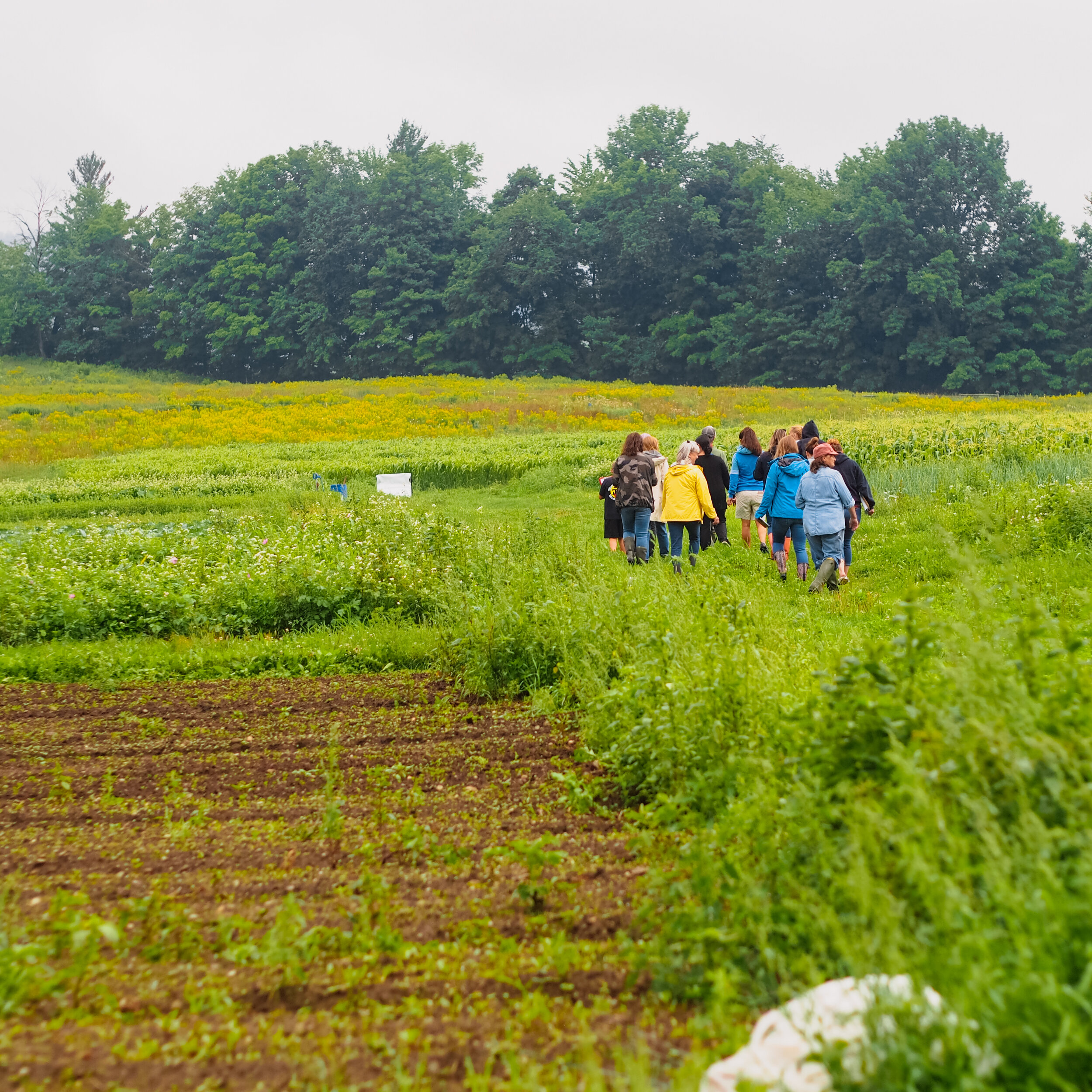

Jointly hosted by Food Connects, VT FEED, and the School Nutrition Association of Vermont, these workshops were a time for school nutrition professionals to connect with farmers, think about local purchasing, and the opportunities of a new state bill that incentivizes buying Vermont products for their programs. In addition to touring the host farm, participants prepared a menu item that featured local products from the farm and met the school lunch meal pattern guidelines. There was also plenty of time for everyone to share stories from the past year and hear about what’s been working and what hasn’t been.
“The past 18 months have been especially hard on school nutrition professionals,” says Helen Rortvedt, Farm to School Program Director for NOFA-VT & VT FEED. “Working from home was never an option for them, and the need for healthy meals has only increased. It’s vitally important to have the time to come together, share best practices, and plan for restoring or expanding their local purchasing plans for the coming school year with colleagues.”

Made possible by a 2020 USDA Farm to School Implementation grant, participants got an inside look into the operations and hurdles local farmers contend with and discussed ways to get more of their products into school meals. A common theme throughout each of the workshops was the similarities between both professions in regards to the constant logistical details they had to consider—what’s the best packaging option for food, the constant battle for cold storage space, and how do you get your food to consumers (whether that be customers or students).
At the forefront of everyone’s minds was the local purchasing incentive recently passed by the Vermont legislature. Schools have incredibly low budgets for food (under $1.50 per meal), making it difficult for them to buy high-quality, locally produced foods. This new grant will help by reimbursing schools that use local ingredients in their meals. Given how new the program is, everyone has questions about what implementation will look like.
Food Connects is a natural partner for schools looking to increase local purchasing. The Farm to School Program works with school nutrition professionals, educators, and administrators to increase nutrition and farming education in classrooms, building interest in and demand for local foods by students. Once the demand is there, the Food Hub can deliver food from over 150 producers right to the school, providing schools an easy and affordable way to participate in the local food system.

Announcing our Back to School with Food Connects Fundraising Campaign!
BS&L Grows Farm to School in Brattleboro
We’re Hiring a Farm to School Coach
Open for Business: BUHS Farmstand
A Visit to the Rich Earth Institute

Earlier this summer, a diverse group of curious folks from our community toured the Rich Earth Institute (REI) to learn more about this unique, innovative resource in our community. REI works to complete the food nutrient cycle by turning human urine into fertilizer, supporting sustainable agriculture, and protecting water sources.
Understandably, the idea of diverting human urine to use as fertilizer makes some people uncomfortable. Because of this, although our group included parents, teachers, school board members, and other community leaders, most people attending were careful to say in the introductions that they were not representing their organization or school but were attending as a curious community member. With that out of the way, this group was free to think creatively about how REI’s approach and technology could someday benefit our community. Ideas ranged from peecycling port-a-potties on school playgrounds and at community events, using urine as fertilizer in gardens and landscapes around town, and installing high-tech urine-diverting toilets in local schools and businesses.

High-tech urine-diverting toilet at REI offices.
Implementing these ideas is a long way off, as we wait for technology to improve and attitudes and behaviors to change. In the meantime, we were inspired by many of the things we learned! Here are a few highlights:

This map shows the location of REI’s urine donors throughout the region.
Human urine, which contains high nitrogen and phosphorus concentrations, makes up less than 1% of wastewater. Nitrogen and phosphorus cause harmful algae blooms, which are destructive to aquatic ecosystems. By separating human urine from other wastewater, we can eliminate up to 75% of nitrogen and 55% of phosphorus from our municipal water systems.
Human urine is an effective, sustainable, local alternative to commonly used synthetic fertilizers. In fact, the urine produced by one person annually contains enough fertilizer to grow nearly a whole year's supply of food!
Currently, around 200 dedicated volunteers in Brattleboro donate their bodily nutrients to Rich Earth’s program—totaling over 10,000 gallons of urine annually! This creates a source of sustainable fertilizer for local farms, reduces downstream nutrient pollution, and conserves over a million gallons of clean, potable water since the program began in 2013.
We're excited to see how the innovative science and research of REI can be shared over time with our schools and community to bring greater health to our farms and aquatic ecosystems. REI planted a research garden this spring which will be available this fall for educators and student groups to tour and learn more.

REI’s newly planted research garden.

Remember the last time you split a restaurant bill with friends—how long did it take? If it’s anything like my experiences, it always ends up being far more complicated than expected. Now, imagine splitting the grocery bill for 30 teachers and divvying up cases of potatoes, mushrooms, asparagus, arugula, and more. Add in special orders (Terra Nova coffee, anyone?) and delivery, and you’ve got the Brattleboro Union High School’s (BUHS) Virtual Farmstand.
Despite the pandemic restrictions, BUHS students in the F.A.R.M.S program (Foundations of Agriculture, Reading, Math, and Social Engagement), with the help of teachers Alison Kelly, Erica Cross, and Lauren Allembert, managed the school’s buying, which sold over $2,500 worth of local food to school staff over the past year. School staff would place their orders via a Google Sheet developed by Food Connects, and the Food Connects Food Hub would then deliver the bulk order directly to the school. From there, students handled all communications to the staff, measured and packed individual orders, and sent invoices to their customers. Taken all together, the BUHS Farmstand is a standout example of how Farm to School in the upper-grade levels can be interdisciplinary, hands-on, and engaging for the entire school community.

“The Farmstand was an anchor for many of our students this past year. Not only did it keep learning hands-on during the pandemic, but it helped our students build community within the school." says BUHS teacher Lauren Allembert.
Students practiced their math skills—dividing orders, measuring out correct weights, and tallying up invoices. The class had to create systems to manage the flow of fresh produce through the classroom and back out to customers. Individuals honed their communication skills via emails to teachers and when delivering orders.

School staff were excited to support the students in their real-world learning. Added benefits for the school community included an easy way to buy local foods and lower prices since they were buying directly from the Food Hub.
The F.A.R.M.S. program does much more Farm to School as well. Students grow crops in raised beds built by the Windham Regional Career Center, practice culinary skills using local foods, and learn about the natural sciences through the lens of horticulture. The program is also open to a wide audience, explains Allembert, “the F.A.R.M.S. program creates an opportunity for all students in our community to engage at any level. Students have taken sustainability coursework, participated in the farmstand, and others have completed community service within the C.S.A."
Looking to next year, the class is excited to get their farmstand back in person. While the virtual format was an innovative pandemic solution, the sense of community fostered through the physical stand can’t be replaced.
Sprouting kits, blooming gardens, outdoor exploration, and more—Brattleboro schools had a great year of Farm to School activities. Over the past school year, we have seen the flexibility and adaptability of Farm to School programs. At Food Connects, we work with schools to coach teams and implement Farm to School activities. This year, Brattleboro Savings & Loan (BS&L) sponsored a portion of our work in the Brattleboro schools.
"At BS&L, we understand that good nutrition and access to healthy foods is critical to developing lifelong healthy eating habits and overall good health,” says Dan Yates, President and CEO at BS&L. “That's one reason we support this important program."

Students gardening at Green Street School.
One of the most effective ways to get kids to eat new foods is by engaging them in growing their fruits and veggies. Taste tests and school gardens throughout the Windham Southeast School District (WSESD) bring these experiences daily. The Farm to School efforts don’t end when the school year finishes either! A perennial Farm to School question is, what do you do with the gardens when students aren’t there? Each school has a unique answer to this question; the WSESD partners with Food Connects to ensure the gardens thrive throughout the year.
Tara Gordon, Food Connects Garden Coordinator, has worked hard all summer tending to the plants and inviting families into the space. Tara’s consistent presence ensures the beds don’t get out of hand, whether it’s an early-season drought or soaking rains. She is also a friendly guide for families interested in learning more over the summer months.
“It's amazing to see the gardens come to life in the summer, the colors, the smells, the heights and fullness of the plants, and of course the fresh fruits and vegetables we can enjoy, making the garden such a wonderful place to spend time in the summer.” reflects Mary Kauffman, Oak Grove School Principal. “Each month, Tara can be seen throughout the school working with classes, both inside and outside, to learn more about gardening, harvesting, and cooking!”

Summer Garden Coordinator, Tara Gordon.
Support from Brattleboro Savings & Loan helps Food Connects bring the needed resources to Tara and Oak Grove for successful programs, whether that’s cooking supplies, seeds, community connections, or a partner in curriculum development. Visit Oak Grove during their annual Harvest Dinner to see the fruits of everyone’s work—delicious foods grown on the campus and engaged students proud of the healthy meal they had a part in creating.
For many, Farm to School is the highlight of the day, principals included! “I love spending time in classes when Tara is the guest visitor,” says Mary Kauffman. “We get to learn about the harvest, see how easily it can be included in our everyday lives, and get to taste something delicious.”

Oak Grove’s Living Schoolyard
We’re Hiring: Farm to School Coach
Planting Day Returns to Westminster
Bon Appetit, Green Street School!
New Harvest of the Month Crops